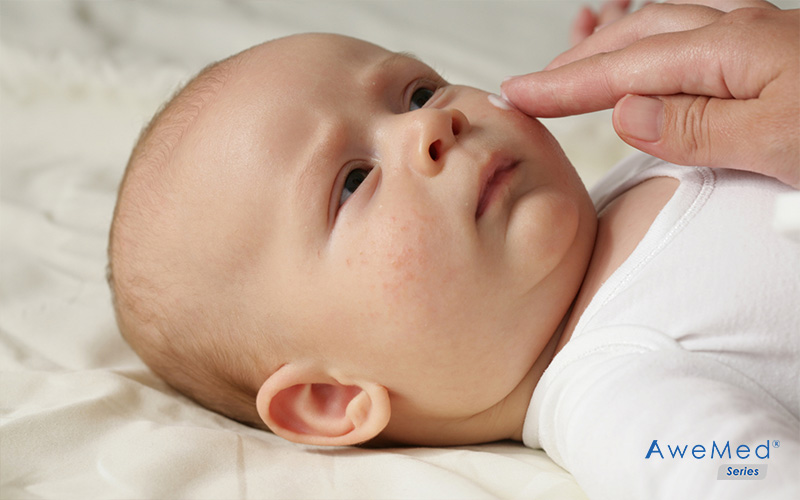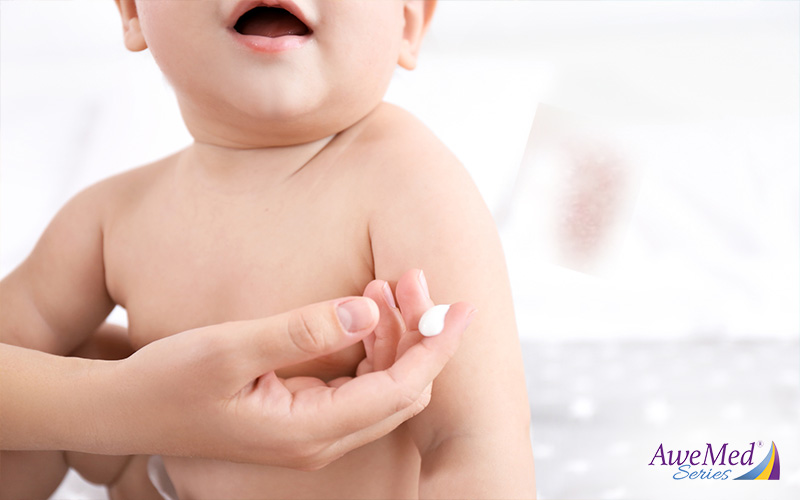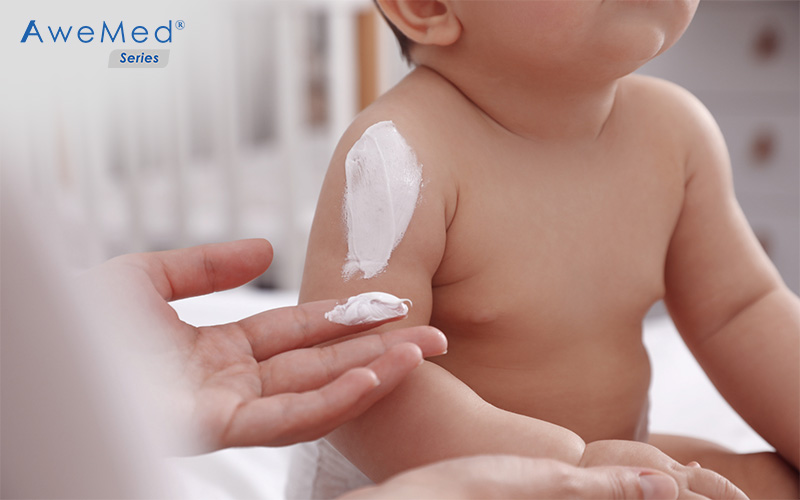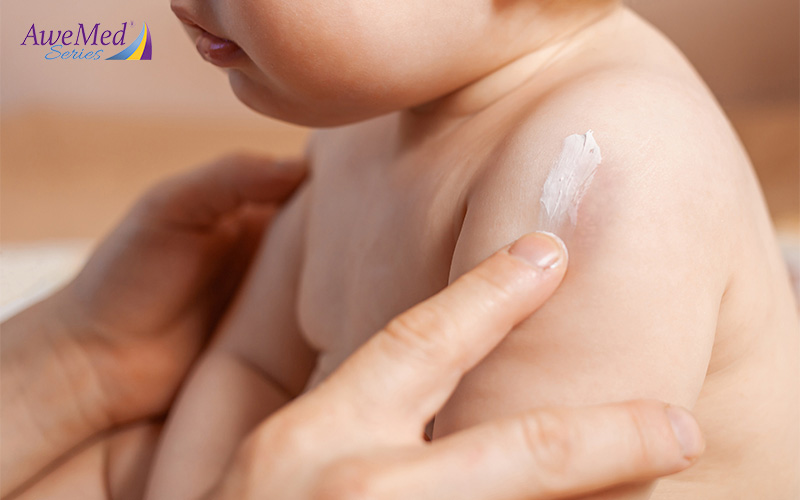
Managing a child’s eczema condition can be challenging and stressful for parents. As a chronic skin condition with no cure, eczema requires ongoing care and attention to prevent flare-ups and uncomfortable symptoms.
From keeping the home environment clean to the diligent application of eczema relief moisturizers, there are ways to easily support your child’s skin health. Here’s a guide to pediatric eczema care to help you improve your child’s quality of life.
1. Regularly Moisturise the Skin
The consistent use of topical moisturizers can do wonders for your kid’s skin. Not only does this help to hydrate the skin, it also creates a layer of protection to lock in moisture while preventing allergens from causing irritation. This allows the skin to focus on healing.
The best time to apply eczema relief moisturizers is immediately after a bath, usually within three minutes while the skin is still damp. It’s a good habit to also carry around a moisturizer such that your child can reapply it throughout the day after coming into contact with water (e.g. after hand washing).
2. Gentle Bathing Practices
Good personal hygiene and daily showers are essential parts of eczema management that aids in keeping bacteria away from your child and preventing eczema flare-ups. However, as long showers and baths can still cause skin dryness, it’s important to keep them short. Use lukewarm water and an eczema body wash to avoid irritating your child’s skin.
3. Make Wise Clothing Choices
Certain fabrics can be abrasive to your child’s skin, exacerbating their condition. To reduce that risk, invest in soft, breathable clothing such as those made of cotton, and opt for loose-fitting ones to minimise friction and allow the skin to breathe.
4. Keep Your Child Cool
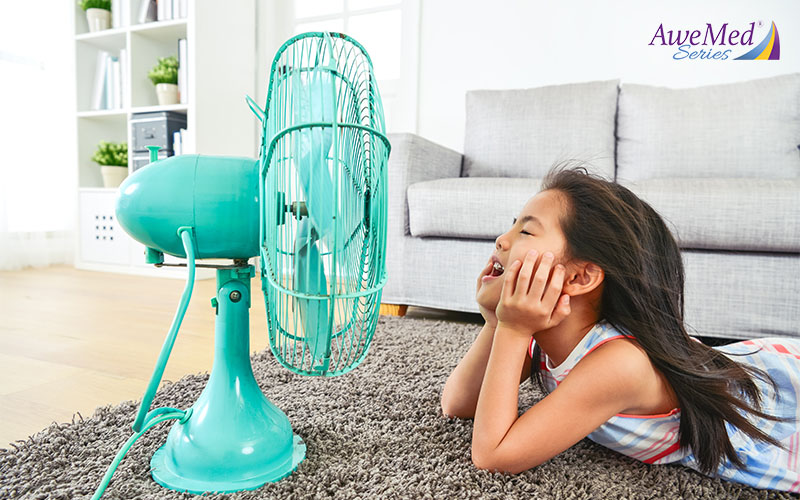
Heat is a known trigger for eczema flare-ups. As such, keeping your child cool can be a valuable step towards managing symptoms. Apart from dressing them in light, breathable clothes, maintaining a cool environment at home and carrying a portable fan while on-the-go will work too.
5. Eliminate Allergens
Allergens in the home can cause flare-ups and make it uncomfortable for your child’s day-to-day life. Identifying and eliminating potential allergens in the house, such as changing out cleaning products and detergents used, or making dietary adjustments, can significantly impact symptom severity.
6. Hydrate
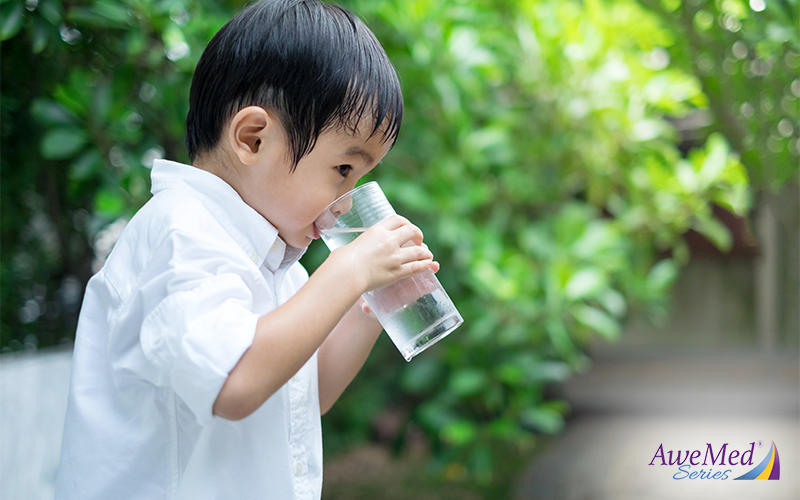
While drinking lots of water will not hydrate skin directly and cure eczema, it keeps your body healthy and ensures optimal function. This includes maintaining the shape and structure of your cells and fortifying their resistance to external irritants. Water also facilitates the flushing of toxins, which can be helpful in fighting inflammation, a characteristic of eczema.
7. Seek Prompt Medical Attention When Necessary
Remain vigilant and always keep an eye on your child’s condition. Should there be sudden changes or worsening of their eczema, seek medical attention promptly to address the issue. Experts can also provide tips for managing children’s skin health to guide you towards providing the best care.
Caring for and managing eczema in young children require a holistic and attentive approach. By diligently incorporating the above-mentioned strategies into your daily routines, you can easily help your child minimize the impact of eczema on their quality of life.
Start by protecting your child’s skin with the right skincare. AweMed Series’s eczema-friendly products such as itch relief creams and eczema body washes are developed with local dermatologists and pediatricians. They help enhance skin repair and preserve skin integrity to promote healthier skin. Find out more about our products here.
References
National Eczema Association. (2022b, October 16). Lotion and moisturizer for eczema – everything you need to know. https://nationaleczema.org/eczema/treatment/moisturizing/
National Eczema Association. (2022a, March 14). Bathing and Eczema | National Eczema Association. https://nationaleczema.org/eczema/treatment/bathing/
How to reduce eczema flares with moisturizer. (n.d.). https://www.aad.org/public/diseases/eczema/insider/moisturizer-reduce-flares
Srakocic, S. (2021, October 20). 15 Tips to Keep Your Skin Healthy After a Shower If You Have Eczema. Healthline. https://www.healthline.com/health/eczema/eczema-after-shower#1
Ranowsky, A., & Ranowsky, A. (2021, October 6). Fight inflammation by staying hydrated. Goodwin Living. https://goodwinliving.org/blog/fight-inflammation-by-staying-hydrated/
Douladiris, N., Vakirlis, E., & Vassilopoulou, Ε. (2023). Atopic dermatitis and water: Is there an optimum water intake level for improving atopic skin? Children (Basel), 10(2), 273. https://doi.org/10.3390/children10020273

